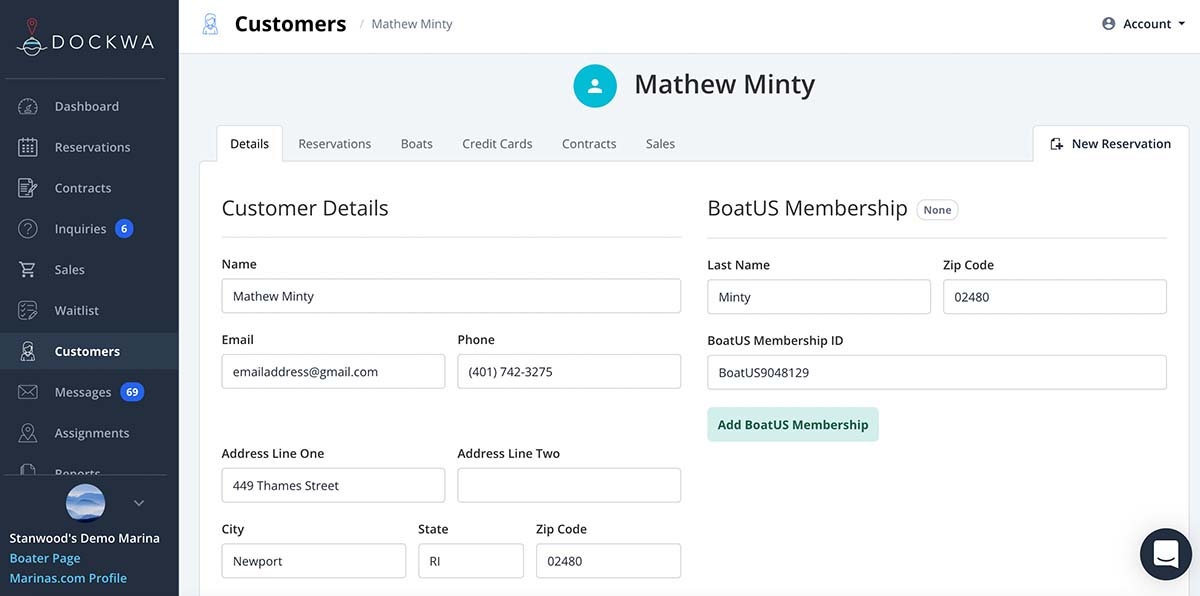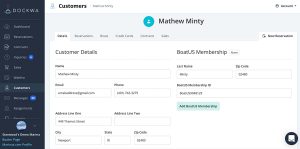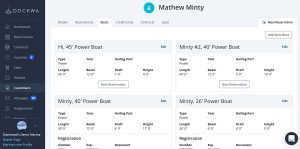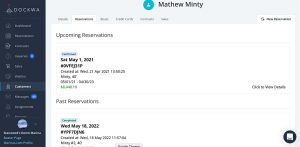
Improving Customer Relations with a CRM
Published on July 1, 2022Marina owners, operators, and staff can make sure the docks, slips, and infrastructure are in perfect working order, but if the facility’s relationship with its customers is lacking the repercussions can reverberate across the entire business. As technology continues to play an increasingly vital role in successfully operating a marina, Marina Dock Age spoke with Meghan Keaney Anderson, chief marketing officer at The Wanderlust Group, the parent company of Dockwa and Marinas.com, about the benefits of a Customer Relationship Management (CRM) platform.
1. Explain why a marina can benefit from incorporating a CRM platform into daily operations?
Having a CRM that stores all of your boater data and keeps track of any given guest’s history with your marina enables you to create a better guest experience and bring more predictability into your operations. In a single view, you can pull up all of the boater’s details, their insurance and registration, their preferences, their boat dimensions so you’re not having to ask your most loyal customers for that information again and again. You can also start to track patterns such as when your boaters typically reach out for annual storage, who is habitually behind on payments, and optimize your planning and operations with that data.
2. How can a marina or boatyard use CRM effectively?
A CRM is useless unless it becomes the defacto place where you store boater information. Having a single system of record for your entire marina staff to share is what makes this platform so powerful. So I’d start by fully adopting the CRM and making it core to your business processes from contract sends to boater emails. You don’t want stray boater details living outside of the CRM and giving you an incomplete picture. It should be your foundation of customer information.
3. How can utilizing a CRM lead to a better organized business?
There can be a lot of changeover in marina staff. From seasonal staff coming in to help temporarily, to staff hand-offs between shifts. The CRM can be the connective tissue that aligns your entire team around the guests, makes onboarding into seasonal roles easier, and reduces inefficiencies in communication.
4. Building better customer relationships is an important component of operations at a marina. Those relationships can either make or break the future of the business. Since there are so many moving parts at a marina, how does a CRM optimize customer relations?
Boaters who arrive at your property (and spend thousands there) should feel like the entire staff knows them and can anticipate their needs. A CRM enables every staff member, whether they’re the GM or a dockhand on their first day on the job, to access a full understanding of each boater’s needs, history, and value to the marina without having to rely on memory or experience. You can store the little details that often make the biggest difference, like the name of a captain’s dog and have treats waiting for him when the boater arrives.
5. Despite the influx of new boaters due to the pandemic, marinas are now worried about how they are going to retain those boaters as obstacles such as inflation and high fuel prices become a major concern. Can a CRM help existing relations and interactions with customers and potential customers?
A CRM alone is a good start, but if you connect a CRM to automated email tools, your point of sale and other management tools, like Dockwa’s Boater Relationship Platform does, then it can streamline every interaction with your boaters and create a better customer experience. For example, you can store payment details within your CRM and automatically pull them up in your point-of-sale, enabling your boaters to say, “charge it to my account” and reduce the time they spend at the pump worrying about fuel prices.
6. Technology can be intimidating for marina owners and operators. How can marina managers look past their fears and trepidation so they can successfully incorporate technology into their business plan?
This can be the biggest barrier to CRM adoption and value for marinas. But CRMs have become much more intuitive to use over the last few years. Two pieces of advice we offer:
1) Give new team members time and training on this. It’s not a training session you should skip as it is fundamental to your operations.
2) Train staff only on use cases that matter to them. Your team doesn’t need to know how everything in the CRM works, they just need to know how it fits into their day-to-day, so keep the scope small, manageable, and personalized to their work.
| Categories | |
| Tags |






